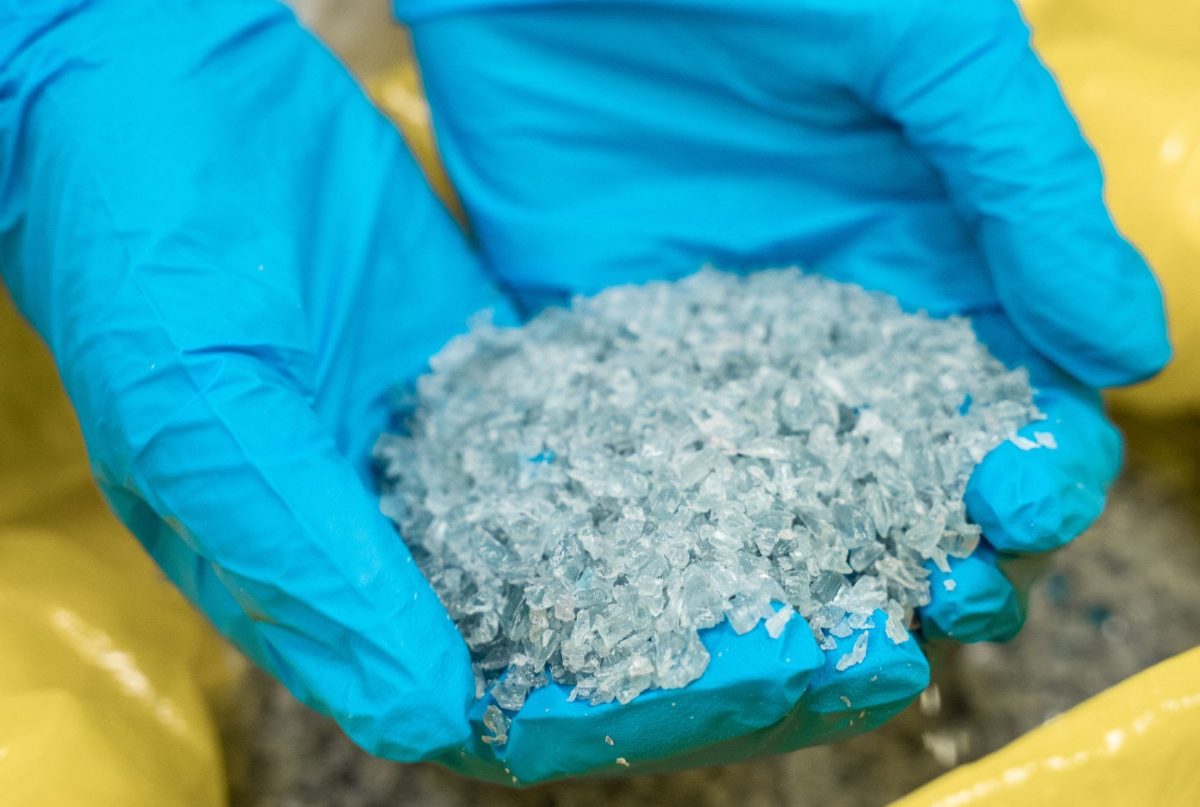
Samsara Eco uses enzymes to break plastics down to their core molecules, which can then be used to make new plastics. Photo: Samsara Eco.
Canberra-based enviro-tech startup Samsara Eco has announced a partnership with Lululemon to develop the world’s first infinitely recyclable nylon and polyester. The two companies plan to work together to create new recycled textiles from clothing waste using Samsara Eco’s ‘plastic-eating’ enzyme technology.
The multi-year collaboration will be Lululemon’s first-ever minority investment in a recycling company and Samsara’s first partnership with a clothing manufacturer.
Founder and CEO Paul Riley told Region the relationship with Lululemon had been developing over the past 12 months, and a series of trials have already been conducted in the hope that a product will be available in stores next year.
Samsara Eco was founded in 2021, with the ANU, Woolworths and CSIRO’s Main Sequence Ventures among its original shareholders. The company aims to tackle the challenge of recycling mixed plastics using the ANU’s world-leading technology, which is able to break complex plastics down to their core molecules within about an hour, making it possible to create new plastics again and again.
Samsara is “very excited about textiles, packaging and automotive”, Mr Riley said. In particular, the fashion industry represents a huge opportunity.
“Given less than 1 per cent of fashion is fibre-to-fibre recycled, we think that this can be a game-changer,” he said.
Around 87 per cent of the world’s textile waste ends up in landfill, incinerated or leaks into the environment, even though almost all of it is recyclable or reusable.
“Until now, there’s been no method of recycling it,” Mr Riley said.
This is where Lululemon comes in.
With the support of the global athleticwear brand, Samsara has expanded its library of enzymes to include polyester and nylon 6,6 (a type of nylon commonly used in clothing).
Nylon and polyester make up around two-thirds of the clothing produced around the world today. Nylon 6,6 is “one of the most common materials utilised by the textile and fashion industries”, he said.
While its complex chemical structure makes it “extremely versatile and resilient” – which is why it’s so popular in clothing – this makes it extremely difficult to break down and recycle.
“The issue around conventional plastic recycling is that the plastic degrades over time, or it ends up being converted into other products that don’t depend on the structural integrity of its original form. For example, a polyester dress might end up being turned into a bag or a washcloth,” Mr Riley said.
Asked whether the partnership will focus purely on recycling Lululemon apparel, Mr Riley said Samsara Eco is “definitely open to textiles from other sources”. The nature of the enzyme process means that a “whole raft of waste in the supply chain” can be used, including “used clothing, post-industrial or post-consumer waste”.
While this is Samsara’s first partnership with a clothing manufacturer, there are hopes that the company can make further breakthroughs into the mainstream fashion industry in the future, as well as working with partners in other spaces as it strives to meet its goal of recycling 1.5 million tonnes of textiles by 2030.
“We’re proud that this partnership is disrupting the apparel industry. The ability to infinitely recycle textiles, including nylon, is an essential solution to tackle the enormous challenge of textile waste in the apparel industry,” Mr Riley said.
“We’re expecting more industries that depend on plastic to see Samsara Eco as a viable recycling option.”
Samsara is looking into working with offshore partners to scale up its operations, but Mr Riley said the company is Canberran at its core and the ANU is the “heart and soul of the team”.
The company already has a facility in Mitchell producing monomers for the Lululemon project and hopes to have its Jerrabomberra site operational by the first quarter of the coming year.
Samsara is also “scoping larger facilities, given the scale of Lululemon”.
“That’s one of the benefits of someone like Lululemon deeply engaged and committed to the project, to pull you to market,” Mr Riley said.












